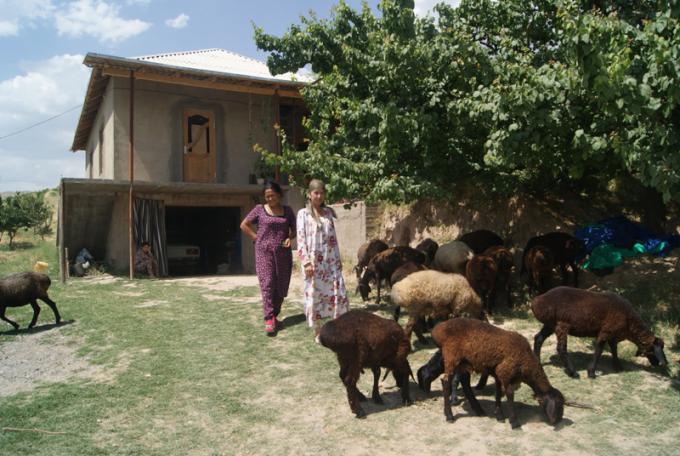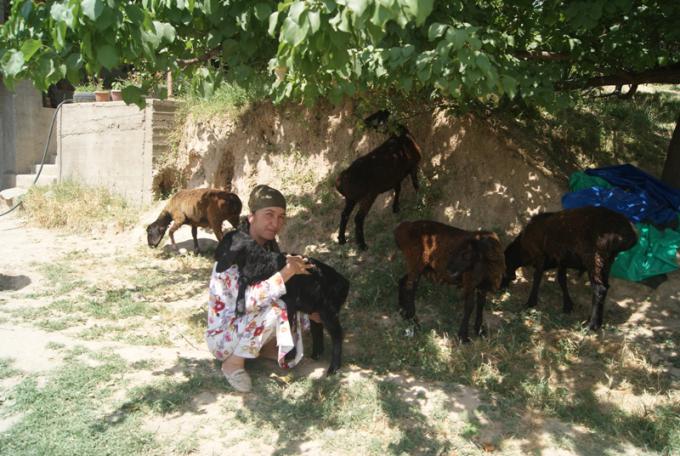Women's group in Tajikistan demonstrates transformative gender roles in their community
Women’s Group “Marhabo” breaks gender stereotypes, proves that they are capable of assuming leadership roles in their community
The Civil War collapsed the infrastructure and caused further deterioration of the economy throughout Tajikistan. As a result, labor migration became a large-scale social phenomenon. Men started leaving their families for Russia and other CIS countries to earn an income, and women remained behind with the heavy burden of household keeping, child caring and very often financially supporting the family due to irregular remittances sent by their husbands.
The situation was even worse in rural areas. Members of the women group “Marhabo” living in village Ittifoq, jamoat Istiqlol, were also affected by such problems. In addition to the other burdens, the village had limited access to water.
“Marhabo” was established in September 2013 under the DFID funded Women’s Wealth and Influence project. The group consists of 22 women whose initial activities together included: breeding and selling of sheep, embroidery and sewing of the national staff, and also running a small business.
“Possessing 40 different types of skills is not enough for a woman,” stated Marhabo Rajabova, the 42 year-old group leader. Rajabova was born and has been living in the village Ittifoq. Her house is situated on the edge of the village and on a hill. She farms her household plot (orchard) and one hectare of cropland where she grows wheat. She works hard and wants to help her sister to purchase a house. She is also a talented person and writes poems but her fine nature doesn’t stop her from doing things that only men used to do. There is a stock route close to her house where livestock is travelled through in springs from Shahrituz, Khatlon to Penjikent, Sogd and in autumn from Penjikent back to Shahrituz. The stock usually has newborn lambs and their long and hard trip can cause their death. Therefore, stock keepers are interested in selling lambs for less money.
Marhabo decided to buy newborn lambs, bring them up and then sell them for larger amount. Along with getting increased income she improved her health condition by becoming more physically active.
Last autumn Marhabo along with WW&I staff and other representatives of WGs from 17 targeted districts were invited to participate in the Central Asia Forum on “Strengthening possibilities for rural women through solidarity and improving access to resources” organized by UN Women and the Association of “Women and Society” in Khujand City, Sogd region. Women had the opportunity to learn from each other, share experiences and improve their knowledge on the utilization of locally available resources. During this visit Marhabo had the opportunity to be acquainted with the work process of a cooperative in Ghonchi and learnt about milk processing for ice-cream production. “This visit has inspired me. Upon my return I shared the experience I gained with the group members and other women of the village. The majority of women in the village breed cows and sell milk at a low price. We should think about establishing a milk processing workshop in our village as well,” Marhabo said. Some group members were inspired by Marhabo’s hard work and also decided to buy newborn lambs and raise them.
 Central Asia
Central Asia 
